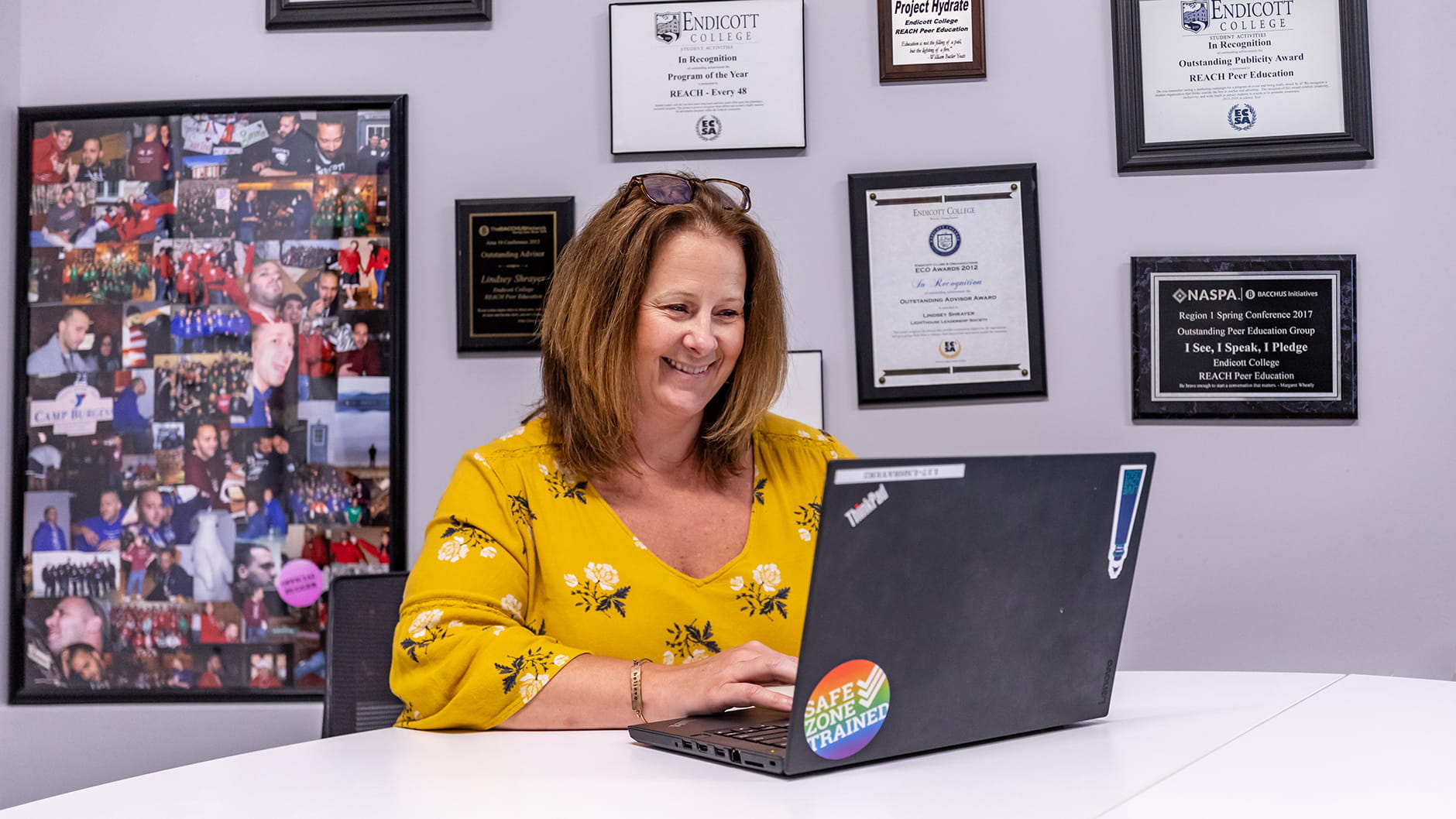The mental health of our Endicott College population is and has always been, an important consideration whether we are in the middle of an academic year or during the summer break. However, this year has presented new student stressors and has given our Counseling Center an opportunity to be there for them in a whole different way. Typically, summer is a slower time for our counselors as the student population is busy with summer work or vacations, but this time around many have needed specific assistance and Endicott has been happy to lend our support.
Assistant Director of Counseling Center Lindsey Shrayer, LMHC says, “Throughout the summer, both the Director Maureen Gebhardt and myself are available to provide Zoom sessions for students looking for support. Some students have been seen before in the Center, however, any student can request to meet for a 30-minute supportive coaching session, through the link on our webpage.”
Trends in Mental Health
The coronavirus (COVID-19) pandemic has brought issues to light that are changing the mental health landscape for many. Shrayer says, “We are working with faculty and staff around mental health trends that we have seen take place a result of COVID-19 and are helping to ensure that we are all able to help our students succeed in their academic, professional, and personal lives.”
She continues, “It has been challenging for students to balance their at home identity along with their school identity and we are eager to connect with students to find out best ways to ensure that they feel supported.”
Our counselors regularly attend trainings to increase their knowledge base, but due to COVID-19 they are taking the time to attend webinars and other training events in order to address new or increased areas of concern. Some trends that are on the rise include substance use, death of loved ones from the virus, financial stress as a result of job loss, and issues unique to study abroad, international education, diversity, equity, and inclusion.
First Year Support
Shrayer says, “In an effort to provide incoming students with an easier transition, we have uploaded a Transition of Care Guide to our website and we are available to meet with incoming students and their families, during orientation about what they might be seeking in terms of support from the Counseling Center when they arrive in September.”
Easing the transition from one care provider to an on-campus one is of paramount importance for those already in treatment. We recognize that and applaud our new Gulls’ proactive effort to take charge of their mental wellness.
For those without an existing provider, we urge you to take a looks at our FAQ’s and First Appointment area. From there, the Counseling Center staff will work with you to help in any way they can so that you can feel your best.
What Will Fall Counseling Look Like?
Facial expression is a key aspect to any counseling session, so our Center is working on finding a safe way to provide face-to-face interaction. Shrayer says, “In terms of the fall, we are currently assessing utilizing both Zoom and in-person sessions. We are examining utilizing face shields, as opposed to masks, in an effort to maintain the quality and integrity of the work while also ensuring safety.”
Of course, training faculty and staff and maintaining togetherness are also areas of consideration. Shrayer explains, “We are eager to continue to provide faculty and staff trainings around the mental health needs of our students and provide tools to assist them in checking-in with their students as well as referring those who may need more support. In addition, we will likely be looking at providing group support, either in person or via Zoom, to offer necessary connections with peers who may be navigating similar issues or concerns.”
Connect with the Counseling Center at endicott.edu/student-life/health-wellness/counseling-center.



